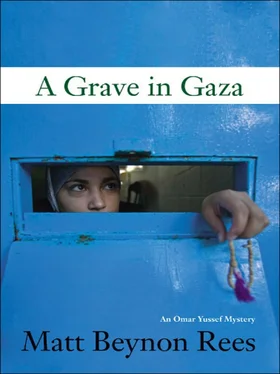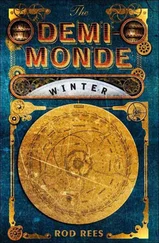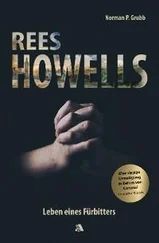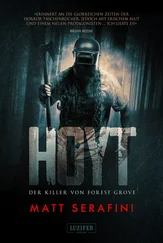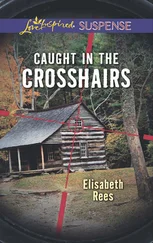Matt Rees - A grave in Gaza
Здесь есть возможность читать онлайн «Matt Rees - A grave in Gaza» весь текст электронной книги совершенно бесплатно (целиком полную версию без сокращений). В некоторых случаях можно слушать аудио, скачать через торрент в формате fb2 и присутствует краткое содержание. Жанр: Криминальный детектив, на английском языке. Описание произведения, (предисловие) а так же отзывы посетителей доступны на портале библиотеки ЛибКат.
- Название:A grave in Gaza
- Автор:
- Жанр:
- Год:неизвестен
- ISBN:нет данных
- Рейтинг книги:5 / 5. Голосов: 1
-
Избранное:Добавить в избранное
- Отзывы:
-
Ваша оценка:
- 100
- 1
- 2
- 3
- 4
- 5
A grave in Gaza: краткое содержание, описание и аннотация
Предлагаем к чтению аннотацию, описание, краткое содержание или предисловие (зависит от того, что написал сам автор книги «A grave in Gaza»). Если вы не нашли необходимую информацию о книге — напишите в комментариях, мы постараемся отыскать её.
A grave in Gaza — читать онлайн бесплатно полную книгу (весь текст) целиком
Ниже представлен текст книги, разбитый по страницам. Система сохранения места последней прочитанной страницы, позволяет с удобством читать онлайн бесплатно книгу «A grave in Gaza», без необходимости каждый раз заново искать на чём Вы остановились. Поставьте закладку, и сможете в любой момент перейти на страницу, на которой закончили чтение.
Интервал:
Закладка:
“Go in peace,” Odwan said.
They walked in silence out of the cellblock. The inmates lay on their bunks and watched them with glassy eyes through the head-high grille in the wall.
On the stairs, Omar Yussef summarized his conversation with Odwan for Cree, who had only picked up some of the Arabic.
“High noon price?” Cree said. “Is that to do with the film, or something? You know, Gary Cooper. No, it can’t be. It’s bloody weird, Abu Ramiz.”
Their escort kissed Sami five times. He raised his hand and gave Omar Yussef a slap on the palm. “May Allah grant you grace, ya zalameh,” he said.
Omar Yussef could still feel the firm grip of Odwan’s massive hand. “Don’t call me man,” he snapped. “Prisons make me unfriendly.”
The officer shrugged. He turned to Cree and saluted. The Scotsman saluted back and gave Omar Yussef a shamefaced wiggle of his eyebrows. “Old habit,” he said, as the officer sauntered toward the prison.
“I’m going to try to verify all this with the Saladin Brigades here in Gaza City,” Sami said, lighting a cigarette.
“The circumstances of the shooting, you mean?”
“Maybe they’ll also tell me if they were expecting delivery of this prototype missile. Write down my mobile number, in case you find anything new.”
Omar Yussef took out the Saladin Brigades leaflet, unclipped his Mont Blanc from his shirt pocket and scribbled Sami’s number across the back of it.
Sami walked around the barrier at the entrance of the Saraya and hailed a junky old taxi.
The dirt caught in Omar Yussef’s throat and whipped against his temple, darting each grain of sand onto his bruise like the jab of a needle. He wanted to rest, but he knew that the day would be a long one. He looked up into the sky, obscured and orange with dust. High noon price. What did it mean? It was as veiled as the sun itself behind the Gaza sandstorm.
“Do you feel okay to drive?” he asked Cree.
“To tell you the truth, I’m not a hundred percent,” Cree said, touching his damaged nose gingerly. “But this is really getting interesting.”
Omar Yussef smiled grimly. “Let’s go to Rafah,” he said.
Chapter 14
They were through the southern districts of Gaza City and were crossing the sandy reaches where an abandoned Israeli settlement had been ploughed over, when Omar Yussef sensed the UN Suburban listing toward the side of the Saladin Road. With a sudden hollow rumbling like the flapping of massive wings, the wheels rolled onto the rocks and lumpy earth at the edge of the field. Omar Yussef grabbed Cree’s arm and jerked the wheel to the left. The Scotsman reared his head and pulled sharply back into the road, blinking out of his momentary slumber. He drove on slowly, past a decaying cluster of single-story refugee homes, with the punchy, wide eyes of a man struggling to follow a country lane through an impenetrable fog.
“You should take a break, James. We both had a tough night. Perhaps we should have had a doctor look at our wounds.”
“A doctor did look at our wounds.”
“He was a doctor who sits on the Revolutionary Council. I mean a real doctor.”
The wind squalled spirals of orange dirt out of the rows of cabbages and tomatoes on either side of the road and whipped them onto the windscreen. Cree curled his long spine forward until his chin was almost on the wheel, staring into the whirling dust. “Don’t worry. We’re nearly there.”
“Rafah? We’re only halfway there.”
“Not what I meant. Something I want to show you just here.” Cree turned off the main road and stopped under a tall date palm. He blew a few times, hard through his mouth, lifted his eyes wide open with his forefingers and rolled his shoulders.
“What’s this?” Omar Yussef asked.
Cree winked a bleary eye, got out of the car and stretched his back.
Omar Yussef pushed his door shut behind him. The musty smell of chickens rode on the hot, thick air. A small, plain, two-story farmhouse of poured-concrete crouched beneath the date palm and behind a cinder-block wall. A hedge of neatly cut evergreen shrubs ran from the house to the corner of the main road. The gusting wind lifted an edge of corrugated tin from the roof of the farm’s outhouse and dropped it with a repetitive slap. Behind the wall of the farmhouse, Omar Yussef heard the light voices of small children playing.
“This is part of Zuweida village,” Cree said. He was looking south into a broad cabbage field. “Over there, somewhere in that dust is Deir el-Balah. You can usually see the date palms lining the main road of the town. Can’t make out a bloody thing now, but it’s there anyway.”
The wind was stronger out here than in Gaza City, where the buildings blocked it. Omar Yussef screwed up his eyes against the sandy flurries that ruffled the cabbage leaves in the field. “James, if you aren’t feeling well, I can drive. I admit I’m a poor driver, but we should get moving. We have to speak to these gunmen in Rafah about Magnus and find out about the missile.”
Cree tilted his head to listen. “He ought to fix that bloody roof. You hear the bugger banging away?” He turned. “Like I said, something I have to show you here.” He walked unsteadily to the door in the wall at the side of the farmhouse. He rapped on the wood and peered over the top of the concrete wall. The children’s voices stopped. A man’s footsteps approached across the yard and the door opened.
“Greetings, Suleiman,” Cree said.
The man returned the greeting and shook Cree’s hand.
“This is Mister Suleiman Jouda. He runs the place,” Cree said to Omar Yussef.
Jouda was short and slim and in his early thirties. His hair was neatly brushed back in a moderately tall bouffant and was as black as his thick mustache. Two dark children stood on either side of a pink tricycle, their pudgy feet bare on the mud floor of the yard, staring at Cree with their fingers in their mouths. Jouda led the way through the yard to a neat gate at the back of the farmhouse. When he opened it, a shock of green hit Omar Yussef.
The wide lawn was greener and more lush than any patch of earth elsewhere in the Gaza Strip. The evergreen hedge extended around the entire lawn, each of its four sides about two hundred yards long. The hedge cut the wind and even the dust was unable to smother the brightness of the grass. Set back from the center of the lawn was a four-foot obelisk of granite on a square plinth of equal height. All around the field, neat rows of graves, carved from white sandstone, were gathered into small, square groups.
Cree strode toward the center of the field. Omar Yussef followed him. To the left of the path, the earth had been disturbed around several of the graves and Omar Yussef saw signs of hurried repairs to a few headstones, but Cree went right past them. Jouda kept a respectful distance.
“You’re a history man, Abu Ramiz,” Cree said. “You see where we are?”
“It’s a British military cemetery.”
“Right you are. From World War One. The British consulate pays Mister Jouda’s wage so that he’ll take care of the place. It’s bonny, isn’t it?”
“Frankly, it’s the only place in Gaza that I would call bonny. It really doesn’t look like Gaza.”
“I agree. Seems you have to die to get any peace in Gaza.” Cree smiled with a distant, bitter squint. “And you had to die in a war long ago to enjoy your peace in a beautiful place where someone cares for you.”
“A forgotten theater of that war, too.”
Cree rolled his tongue round his mouth. “I haven’t forgotten.”
Omar Yussef considered that. He was a history teacher, but he wasn’t the only one who remembered the past. “I spoke about the British campaign in the First World War with Professor Maki last night at dinner. He told me the British attacked Gaza three times before they took it and moved on to Jerusalem.”
Читать дальшеИнтервал:
Закладка:
Похожие книги на «A grave in Gaza»
Представляем Вашему вниманию похожие книги на «A grave in Gaza» списком для выбора. Мы отобрали схожую по названию и смыслу литературу в надежде предоставить читателям больше вариантов отыскать новые, интересные, ещё непрочитанные произведения.
Обсуждение, отзывы о книге «A grave in Gaza» и просто собственные мнения читателей. Оставьте ваши комментарии, напишите, что Вы думаете о произведении, его смысле или главных героях. Укажите что конкретно понравилось, а что нет, и почему Вы так считаете.
